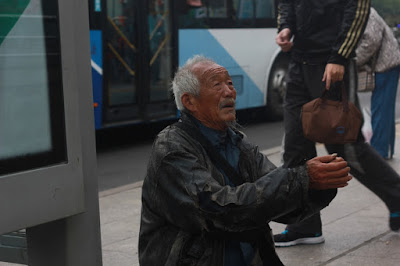Teaching social responsibility abroad
 |
| A man in Qingdao, China asks for change from passersby. Photo by Larisa Karr. |
Each day, 25,000 children are dying and almost one billion people were unable to read a book or sign their names at the start of the new millennium.
These statistics, cited by UNICEF, are the intended focus for a new international
service learning group on campus.
The project, called Ethics of International Engagement and Service Learning
(EIESL), is a partnership between Go Global and the UBC Center for
International Health. EIESL emphasizes the importance of implementing positive
change in rural and impoverished communities throughout the world. It allows
students to volunteer abroad as well as promote equity, community and positive
change. Through Go Global and EIESL, students are taught to value the
importance of social responsibility by becoming more engaged about international
ethical awareness long after their term studying abroad has ended.
“The main goals of the EIESL project are to raise critical consciousness,
educate graduates to become global citizens, work for the community and strive
to promote equity and positive change,” said Dr Shafik Dharamsi, Associate
Director of the UBC Center for International Health and team leader and principal
investigator for EIESL. “Oftentimes, students parachute into a country for a few
weeks, a time which has very little potential to enable lasting change, and only
seeks to use service learning to meet an end, which can be problematic. The
challenges that many of the people in these countries face are so significant that
they needed to be acted on immediately,”he added.
Stephanie Brown, an EIESL project assistant and third-year UBC student,
believes that highlighting social responsibility and ethical judgment should be the
principal objective for sending students abroad to many thirdworld countries. “It
is important to raise awareness on campus for the consideration of the ethics
behind the reasons for studying abroad. Many projects are set in vulnerable
communities, and this creates a relationship of dependence,” she said.
Through EIESL, volunteers are taught to understand the importance of
undertaking volunteer work through participation in community initiatives and case
studies.
“There are no reasons why some communities live in the state they live in,”
said Dharamsi.
“EIESL wants to enable students to take their education as a service to
these impoverished communities and make sure their research has an impact and


Comments